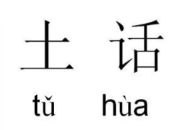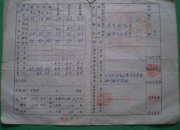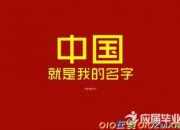小学英语故事短文
时间:2021-08-31很多同学英语不好,这是因为没有充分掌握学习方法。以下是小编整理好的小学英语故事短文,欢迎大家阅读参考!

小学生英语故事:夜郎自大英文版【1】
During the Han Dynasty, in the southwest there was a small country called Yelang, and although it was an independent nation, its territory was small, there weren’t many citizens, and its products were pitifully few. Because it was the largest kingdom in the near area, the Yelang king who’d never left his own country thought the country he ruled was the biggest on earth.
One day, the king of Yelang was on a national border inspection tour with his troops, when he pointed in front of him [to neighboring country] and said, “Which country is bigger?” In order to serve their own interests and make the king happy, the troops said, “Of course Yelang is bigger!” They walked along, and the king once again lifted up his head, gazed at the big mountain in the distance and asked: “Is there a taller mountain than this anywhere on earth?” And his men answered: “No, there’s no mountain taller than this one on earth.” After a while, they reached the river side, and the king asked again: “I think this is the world’s longest river.” And all his men said in unison “The king speaks truly.” After this, the ignorant king believed even more firmly that Yelang was the world’s biggest country.
Then one day, the Han Dynasty dispatched an envoy to Yelang, and en route they encountered the neighboring kingdom DianGuo, and the King of Dian asked the emissary: “If you compared the Han Dynasty and my Kingdom, which one would be bigger?” The emissary listened in astonishment, as he’d never have thought this small a country thought it could compare itself to the Han Dynasty. But he really never could have suspected that when he got to Yelang, the prideful and ignorant king who didn’t know that the kingdom he ruled was about the size of one Han county, would ask with an exaggerated opinion of his own worth, “Which is bigger: the Han Dynasty or my country?”
汉朝的时候,在西南方有个名叫夜郎的小国家,它虽然是一个独立的国家,可是国土很小,百姓也少,物产更是少得可怜。但是由于邻近地区以夜郎这个国家最大,从没离开过国家的夜郎国国王就以为自己统治的国家是全天下最大的国家。
有一天,夜郎国国王与部下巡视国境的时候,他指着前方问说:“这里哪个国家最大呀?”部下们为了迎合国王的心意,于是就说:“当然是夜郎国最大啰!”走着走着,国王又抬起头来、望着前方的高山问说:“天底下还有比这座山更高的山吗?”部下们回答说:“天底下没有比这座山更高的山了。”后来,他们来到河边,国王又问:“我认为这可是世界上最长的河川了。”部下们仍然异口同声回答说:“大王说得一点都没错。”从此以后,无知的国王就更相信夜郎是天底下最大的国家。
有一次,汉朝派使者来到夜郎,途中先经过夜郎的邻国滇国,滇王问使者:“汉朝和我的国家比起来哪个大?”使者一听吓了一跳,他没想到这个小国家,竟然无知的自以为能与汉朝相比。却没想到后来使者到了夜郎国,骄傲又无知的国王因为不知道自己统治的国家只和汉朝的一个县差不多大,竟然不知天高地厚也问使者:“汉朝和我的国家哪个大?”
最新小学生英语故事:专心致志【2】
Long ago there was a chess master named Qiu whose chess skills were superlative.
Qiu had two students who studied chess with him, one student studied with concentrated focus and energy. The other, however, wasn’t like that, he thought studying chess was very easy, and there was no need to take it seriously. When the teacher was explaining, although the [the student] sat there, his eyes seemed to be on the chess pieces, he was actually thinking: “If I go to the countryside right now and shoot a goose, I’ll have a lovely dinner.” Because he was always indulging in flights of fancy and absent-mindedness, nothing the teacher said ever sunk in.
As a result, although the two students studied were taught at the same time by the same master, one improved quickly and became a superior chess player, while the other never learned much at all.
从前有一个下棋能手名叫秋,他的`棋艺非常高超。
秋有两个学生,一起跟他学习下棋,其中一个学生非常专心集中精力跟老师学习。另一个却不这样,他认为学下棋很容易,用不着认真。老师讲解的时候,他虽然坐在那里,眼睛也好像在看着棋子可心里却想着:“要是现在到野外射下一只鸿雁,美餐一顿该多好。 ”因为他总是胡思乱想心不在焉,老师的讲解一点也没听进去。
结果,虽然两个学生同是一个名师传授,但是,一个进步很快,成了棋艺高强的名手,另一个却没学到一点本事。
经典小学生英语故事:一曝十寒【3】
During the Warring States Period, there was a man named Meng Ke [Mencius], who everyone called MengZi. Menzi was very good at creating analogies to foster discussion.
At that time, there was a person who criticized Mencius for not trying harder to help the King of Qi. Mencius explained plainly, saying, “Take this as an example: there are some plants that live well on this earth [lit: under heaven], but if you take them and put them in the sun to dry for ten days, then you take them and put them in the gloom and cold to freeze for ten days, even if their vitality is strong they’re still going to die. My opportunities to see the King of Qi have been less and less, so even if I gave him some good influence and help, as soon as I leave, some people that don’t advocate the same things I do will influence him negatively. [That being the case,] how can I improve the quality of the King of Qi’s thinking?”
战国时,有个叫孟轲的人,大家称他为孟子。孟子善于通过打比方来发表议论。
当时,有人指责孟子不尽力帮助齐王。孟子便解释说:“比如说,天下有些易活的植物,假如把它放在太阳下晒十天,然后再把它放在阴冷的地方冻十天,即使是生命力再强的植物也会死。我见到齐王的机会少之甚少,即使给了他些良好的影响与帮助,我一离开,一些和我主张不同的人,又带给他许多不好影响。我怎么能使齐王的思想、品质好起来呢?”
小学生英语故事:掩耳盗铃【4】
During the Spring and Autumn period, Nobleman ZhiBo of the Jin state eliminated the Fan clan [in battle]. There was a person who sought to take advantage of the defeated [and thus absent] Fan clan to steal some things from their house, and he saw that in their yard dangled a large bell. The bell was molded from the finest bronze, its shape and design were very fine indeed. The thief was extremely happy, thinking to take this refined bell and carry it back to his own house. But the bell was both big and heavy, and howsoever he tried, he couldn’t move it. He thought and thought, and came up with just one solution, which was to break the bell to bits, then take the pieces separately back to his house.
The thief found a sledgehammer, and swung at the bell with all his might. A loud “gong” sound rang out, startling the thief. The thief panicked, thinking this [enterprise] was spoiled, thinking “that kind of noise is tantamount to telling people that I’m here stealing the bell, isn’t it?” He was worried, and he flung is body at the bell, stretching his arms around it to try to still the sound, but really how could he stop it? The sound went on and on, ringing far and wide.
The longer he heard it, the more afraid he became, and withdrew his hands to press them against his ears with all his strength. “Yi, the sound has lessened, I can’t hear it anymore!” The thief became happy again, “How wonderful! If I cover my ears well, the sound can’t be heard!” covered his ears well, he couldn’t hear the sound at all! He immediately found two pieces of cloth and stopped up his ears, thinking that this way, no one else could hear the bell’s sound either. So he began smashing the bell, hitting it again and again, the ringing of the bell being heard even in far away places. People heard the bells sounds and came in great numbers, catching the thief.
春秋时侯,晋国贵族智伯灭掉了范氏。有人趁机跑到范氏家里想偷点东西,看见院子里吊着一口大钟。钟是用上等青铜铸成的,造型和图案都很精美。小偷心里高兴极了,想把这口精美的大钟背回自已家去。可是钟又大又重,怎么也挪不动。他想来想去,只有一个办法,那就是把钟敲碎,然后再分别搬回家。
小偷找来一把大大锤,拼命朝钟砸去,咣的一声巨响,把他吓了一大跳。小偷着慌,心想这下糟了,这种声不就等于是告诉人们我正在这里偷钟吗?他心里一急,身子一下子扑到了钟上,张开双臂想捂住钟声,可钟声又怎么捂得住呢!钟声依然悠悠地传向远方。
他越听越害怕,不同自由地抽回双手,使劲捂住自已的耳朵。“咦,钟声变小了,听不见了!”小偷高兴起来,“妙极了!把耳朵捂住不住就听不进钟声了吗!”他立刻找来两个布团,把耳朵塞住,心想,这下谁也听不见钟声了。于是就放手砸起钟来,一下一下,钟声响亮地传到很远的地方。人们听到钟声蜂拥而至把小偷捉住了。
【小学英语故事短文】相关文章:
1.英语故事短文
2.英语短文故事
3.爱情故事短文
4.英语的小短文故事
5.英语故事的小短文
7.英语笑话故事短文
8.短文英语爱情故事











